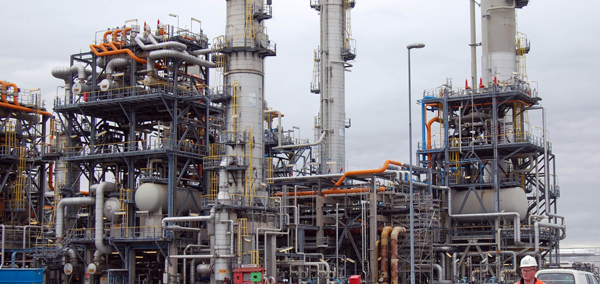LAHORE: The Insufficient capacity of local refineries to produce high-quality gasoline has not only been amplifying import of refined petrol but has led to consumers paying international prices for low-grade fuel, it is learnt.
Petroleum ministry sources told Pakistan Today that the situation calls for fresh investment and technology upgrades for local refineries, as the higher import of refined products is unsustainable in the long run, and could stoke inflationary pressure.
The POL industry has failed to take advantage of the growing demand for petroleum products and this has caused consumers paying a premium. In relation to 9 per cent growth in sales, production only grew by 2.8 per cent. The domestic industry has not been able to fully comply with the regulations for RON 92 grade petroleum to be sold locally. As a result, the market has had to depend on imports to bridge the gap between demand and supply. During fiscal, last year import quantum of petroleum products increased by 39.2 per cent.
Encouragingly, National Refinery Limited (NRL) has adopted higher quality fuel standards, while others are following. It may take some time however it will require a substantial amount of investment to acquire the compatible technology. Moreover, the industry is expected to see a healthy rise in production following the resumption of operations of Byco.
The sources mentioned that the refineries have been constantly failing to meet the target dates, as already The sources mention that refinery had been keep on failing to meet the target dates, already highlighted in the ECC’s decision on February 26, 2013.
According to the decision taken by Economic Co-ordination Committee’s (ECC) on March 8, 2013, refineries were required to upgrade their plant by December 31, 2015, to improve production quality and produce environmentally friendly fuel. ECC of the Cabinet has given an additional 18 months to refineries for up-gradation and expansion.
After a detailed discussion in April 2016, the ECC approved the recommendations of Petroleum Ministry prepared with “guidance” from the oil refineries. Additionally, the refineries also had to set up isomerisation plants to enhance the 1oca1 production of motor gasoline to reduce dependence on imports.
To provide incentives to the refineries, ECC, subject to certain conditions highlighted in its decision, enhanced the existing 7.5 per cent import duty (deemed duty) on HSD to 9 per cent with effect from January 01, 2016 which was available to the refineries till the time of complete deregulation, subject to completion by December 3, 2015.
Moreover, the ECC also deferred the penalty clause till December 31, 2015, on the production of low-grade diesel which was earlier approved by ECC on February 26, 2013.
The Ministry of Petroleum and Natural Resources also submitted the proposals for consideration of the ECC stating that deadlines for completion of isomerisation and DHDS projects in order to enhance PMG production and to produce Euro-II grade HSD may be extended from January 1, 2016, to June 30, 2017.In case any refinery fails to meet the new target date, the penalty will be imposed on that refinery for producing low-grade HSD as already contained in the ECC’s decision of February 26, 2013.
According to the decision, sources said, a monthly progress report was to be submitted by each refinery to the government, earlier proposal for enhancing 7.5 per cent import duty on HSD to 9 per cent with effect from January 1, 2016 may be disallowed as refineries had failed to meet the target date for completion, and the condition of opening/maintaining an escrow account and transferring of available balance of special reserve amount in it, as decided by ECC on March 8, 2013, may also be withdrawn.
The ECC minutes states that refineries could not complete requisite up-gradation work within the approved time limit of December 31, 2015. ‘This was the third extension to refineries but as conveyed by the refineries, they could not succeed due to certain reasons/hurdles of security and changes in SRO 575 on June 5, 2006. Only Attock Refinery showed significant achievement and was expected to complete DHDS in April 2016 and isomerisation by June 2016 but it could also not meet the deadline. Pakistan Refinery had completed the isomerisation project and had requested further time to streamline the project.




